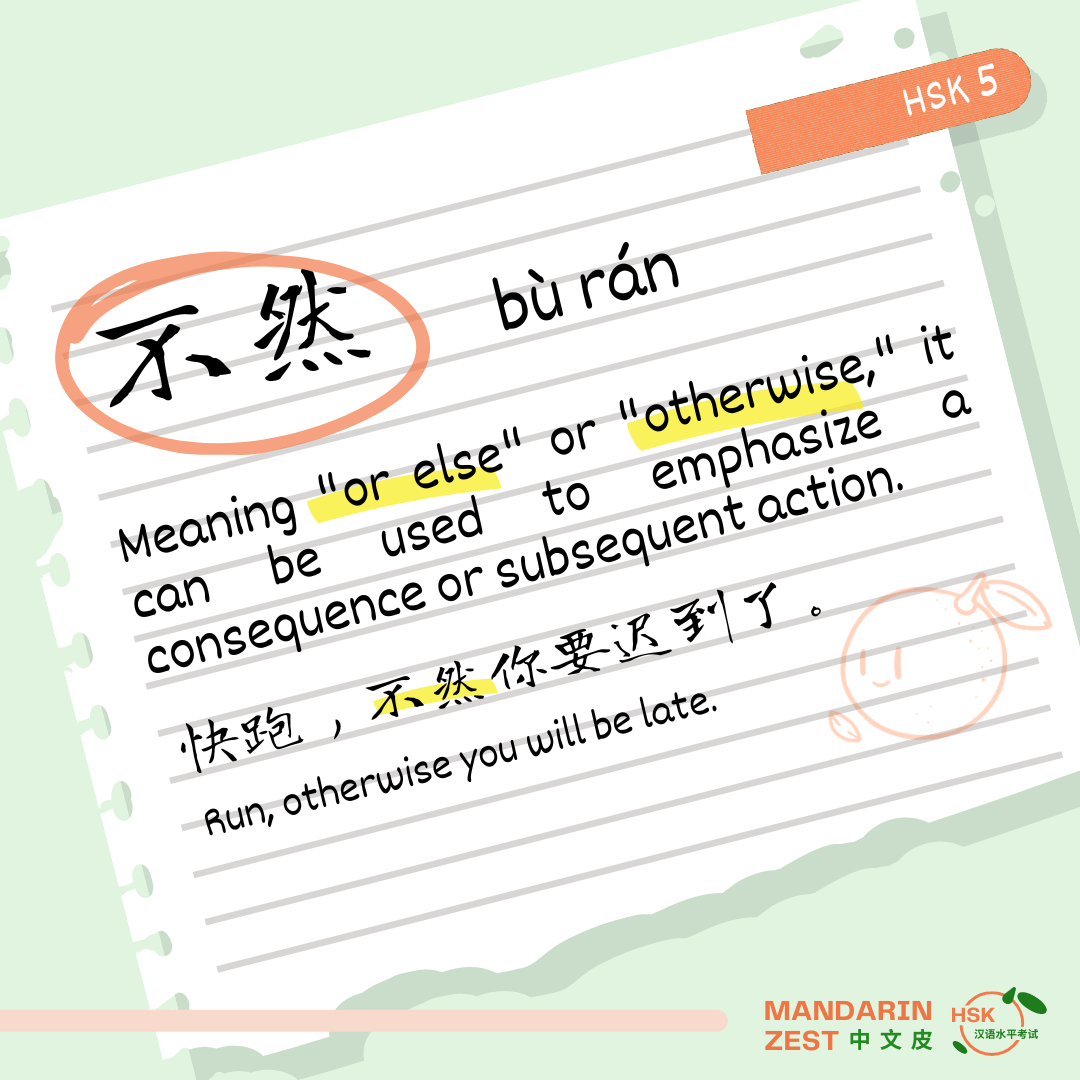The word 不然 (bùrán) is a versatile and commonly used Chinese conjunction that means "otherwise," "if not," or "or else." It's particularly useful when you want to emphasize the potential consequences of an action or decision. Typically, 不然 connects two clauses, with the second clause presenting an alternative outcome or consequence if the condition in the first clause isn't met. This makes it a handy tool for expressing cause and effect in everyday conversation.
In addition to 不然, there are a couple of similar expressions you might come across. For example, 要不然 (yàobùrán) also means "otherwise" or "or else," and it serves a similar purpose. Another variant, 要不 (yàobù), can be used to suggest an alternative, like "how about," or to indicate a consequence, similar to "or else." Understanding these nuances can help you use these phrases more effectively in different contexts.
Sample Sentences
我们得早点出门,不然可能会赶不上飞机。(We have to leave earlier; otherwise, we might miss the plane.)
你需要提前完成这个项目,不然到截止日期的时候,可能会来不及。(You need to finish this project in advance; otherwise, when the deadline comes, you might not make it in time.)
请按时交报告,不然你会被扣分。(Please submit the report on time; otherwise, you will be deducted points.)
In a Text
说到七步诗大家都很熟悉,即“煮豆燃豆萁,豆在釜中泣,本是同根生,相煎何太急”。而这首诗的作者被认为是曹植。相传曹操死后曹丕继承魏王爵位,为了对付曾经和自己争夺魏王世子之位的弟弟曹植,曹丕命令他七步内写出一首诗,不然就要将他杀死。
七步诗 (qī bù shī): the Seven-Steps Poem, or Seven-Steps Verse, a famous poem attributed to Cao Zhi, written in the time it took to walk seven steps
豆萁 (dòu qí): bean stalks
釜 (fǔ): a cauldron
泣 (qì): to cry, to shed tears
相煎 (xiāng jiān): to harm or kill each other. In the context of the poem, it refers to the act of harming one another despite being from the same root.
何 (hé): (lit.) why
魏王 (Wèi wáng): King of Wei
爵位 (jué wèi): a noble title or rank
争夺 (zhēngduó): to contest or compete for
世子 (shìzǐ): the heir, the designated successor to a throne or title.
When it comes to the Seven-Steps Verse, everyone is quite familiar with it, namely:
“People burn beanstalks to boil beans; They sieve soya to make a drink.
The beanstalk burns beneath the pot; The beans in the pot cry out.
Born as they are of the selfsame root; Why should they torment each other so much?”
The author of this poem is believed to be Cao Zhi. According to legend, after Cao Cao's death, Cao Pi succeeded the title of King of Wei. In order to deal with his brother Cao Zhi, who had once competed with him for the position of heir to the Wei throne, Cao Pi ordered him to compose a poem within seven steps, otherwise, he would be executed.






